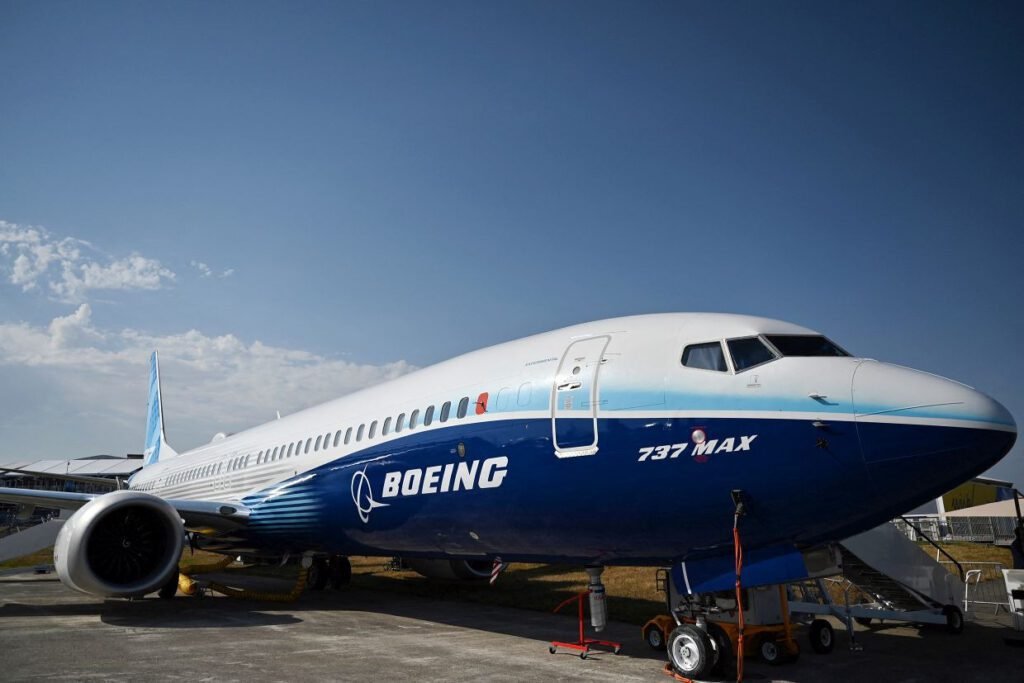Former President Donald Trump’s recent diplomatic trip to the Middle East has triggered a significant boost for Boeing, with the aerospace giant reporting an impressive surge in aircraft orders in May. This development highlights how geopolitical moves can directly influence global business landscapes, especially in industries as interconnected and strategic as aviation.
The timing of this surge is particularly notable. After years of turbulence due to the pandemic and supply chain challenges, Boeing’s ability to secure a substantial influx of new orders from Middle Eastern clients signals a turning point — one fueled by a combination of renewed regional optimism and the strategic outcomes of Trump’s visit.
A Revitalized Partnership in a Vital Region
The Middle East has long been one of the world’s most important aviation markets, serving as a crossroads between continents and a hub for global air travel. Airlines in the region, such as Emirates, Qatar Airways, and Etihad, are renowned for their modern fleets and ambitious expansion plans. But these plans were temporarily slowed as the pandemic disrupted travel worldwide.

Trump’s diplomatic efforts reignited the momentum by reaffirming the United States’ commitment to economic and security partnerships in the region. These assurances gave key regional stakeholders the confidence to move forward with fleet upgrades and new aircraft acquisitions. Boeing was a natural beneficiary, given its longstanding presence and deep ties with Middle Eastern airlines and governments.
Meetings held during the trip emphasized cooperation beyond mere trade. They fostered a sense of strategic alignment, touching on defense, technology exchange, and economic diversification efforts—all critical priorities for Middle Eastern nations as they seek to reduce reliance on oil revenues and build more resilient economies.

Boeing’s Order Surge: A Financial and Symbolic Win
The orders Boeing secured in May represent one of its strongest monthly performances in recent years. This windfall is both financially impactful and symbolically important. For Boeing, it means a healthier backlog of aircraft deliveries, improved production forecasts, and renewed investor confidence.
From a financial perspective, these new contracts translate into billions of dollars in future revenue and strengthen Boeing’s position in a competitive market. The company can leverage these orders to streamline its supply chain, optimize manufacturing schedules, and invest further in research and development.
Symbolically, this surge is a vote of confidence from one of the most strategically important regions in the world. It demonstrates that despite global uncertainties, demand for Boeing’s aircraft remains robust and that its products are highly valued by some of the world’s most demanding airline customers.
How Trump’s Visit Accelerated Business Deals

While diplomatic visits often focus on political messaging, Trump’s Middle East trip had tangible commercial outcomes. The visit helped accelerate contract negotiations that were already underway and opened new avenues for discussion with regional leaders.
By spotlighting the visit’s success, Boeing was able to showcase its latest aircraft technologies and services directly to decision-makers. This face-to-face engagement helped build trust and resolve lingering concerns around delivery schedules and after-sales support—factors that are crucial when airlines make high-value purchasing decisions.
It also paved the way for broader strategic dialogues that go beyond sales. For example, discussions around joint ventures, maintenance and training facilities, and innovation centers were part of the visit’s agenda, further deepening Boeing’s footprint in the Middle East.
The Broader Aviation Industry Impact
Boeing’s windfall is a bellwether for the wider aerospace sector. The pandemic pushed airlines to postpone or cancel orders as demand dried up, but this order surge is evidence of a strong recovery phase, particularly in the Middle East.
Airbus and other competitors are closely monitoring this development. Boeing’s success here raises the stakes in the race for dominance in a region that is vital for global air traffic. Future deals and negotiations will likely become more competitive as all players aim to capitalize on the reopening and growing demand.
Moreover, this surge reflects the growing trend of diplomacy and business being intertwined in ways that can accelerate market growth. Political goodwill, strategic partnerships, and shared economic goals are increasingly critical in winning large-scale contracts in sectors like aerospace.
Why the Middle East Remains Crucial for Boeing
The Middle East’s strategic geographic position makes it an indispensable hub for global air travel. It connects East and West, serving billions of passengers annually. Airlines in the region have historically been early adopters of new technology and fleet modernization, driven by intense competition and a desire to offer world-class service.
Furthermore, governments in the region are investing heavily in diversifying their economies and building infrastructure to support non-oil sectors. Aviation plays a central role in these plans, providing connectivity that supports tourism, trade, and business.
For Boeing, maintaining and growing its market share in the Middle East is essential. The region’s airlines are not just customers but also partners in innovation, training, and sustainability initiatives. Success here can create ripple effects across other global markets.
The Road Ahead for Boeing Post-Visit
With the momentum generated by Trump’s visit and the resulting order windfall, Boeing is well-positioned to strengthen its global leadership in commercial aviation. However, sustaining this growth will require consistent delivery on promises related to aircraft quality, innovation, and customer service.
Boeing must also navigate ongoing challenges, such as supply chain constraints and evolving regulatory environments, while continuing to invest in sustainable aviation technologies to meet rising environmental expectations.
Engagement with Middle Eastern partners will remain a strategic priority. Building on recent success, Boeing is expected to deepen collaborations in maintenance, pilot training, and advanced manufacturing—all essential for long-term customer satisfaction and loyalty.
The Human Element: Building Trust Through Diplomacy

What this story ultimately reveals is how personal relationships and diplomatic engagement can translate into significant economic outcomes. Boeing’s May order windfall is not just about machines; it’s about trust, reputation, and partnership.
Trump’s visit exemplified this principle. By taking the time to engage directly with leaders and stakeholders, the visit broke down barriers and fostered an atmosphere where business deals could flourish.
For employees, shareholders, and customers alike, this reinforces the value of diplomacy in business. Behind every aircraft order is a network of people working together toward shared goals—and strong relationships make those connections more resilient.
Conclusion: A Win-Win Scenario Forged in the Skies
Trump’s Middle East visit has proven to be more than a political milestone; it has driven tangible business success for Boeing. The surge in May orders reflects the power of diplomacy to create economic opportunity, especially in an industry where global connections are everything.
For Boeing, this windfall marks a turning point—a chance to recover, grow, and innovate. For the Middle East, it represents a reaffirmation of its role as a global aviation powerhouse and a partner in technological progress.
As Boeing and the region continue to strengthen their ties, the impact of this visit will be felt for years to come, propelling both business and aviation into a promising new era.
Do follow UAE Stories on Instagram
Read More: CITRA Game-Changing Regulations Set to Empower Kuwait’s Telecom Distributors












